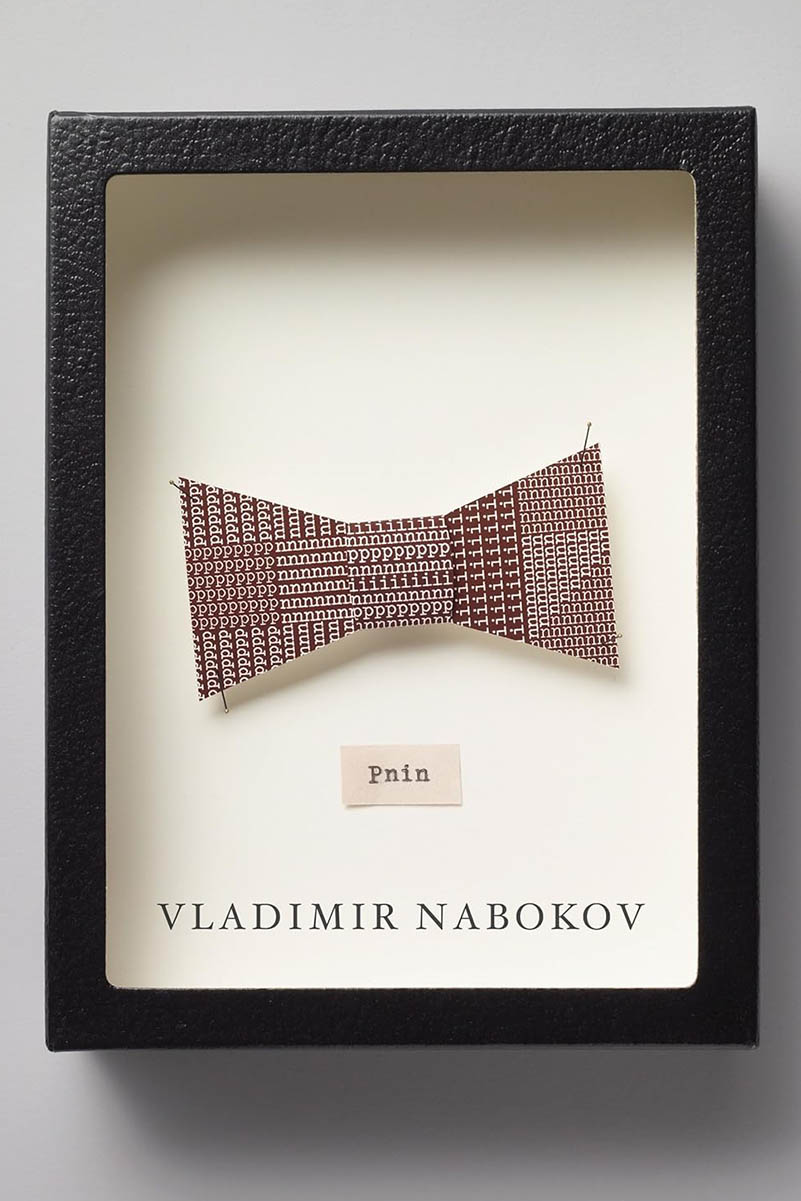Pnin
by Vladimir Nabokov
“‘No, no,’ said Pnin, ‘I do not wish an egg or, for example, a torpedo. I want a simple football ball. Round!’”
This snippet of Vladimir Nabokov’s Pnin epitomizes the titular character. Nabokov creates a comedic and absurd stage that combats the seemingly monotonous life that the reader follows. Timofey Pavlovich Pnin is a Russian man who travels to America to work as a professor at the fictional Waindell college. Pnin is a pitiable man without a stable home and a wife, as well as having a rapidly decreasing number of students under him per year. Yet even though he has close to nothing, he somehow finds beauty in the littlest things and appreciates what he has. This mindset, although garnering him little respect from his colleagues and acquaintances, allows the reader to root for him until the end of the novel.
The novel begins with Pnin traveling on the wrong train and following an outdated schedule. Right off the bat, Pnin is portrayed as clueless and clumsy—he manages to dash into one catastrophe after another. He loses his baggage, has a stroke, and is forced to pay extra to switch trains. These series of irrational and laughable events set in place the rest of the novel; although Pnin attempts to muster dignity for himself, he never seems to succeed.
The novel is told through a man who is allegedly Pnin’s “old friend.” The narrator seems to intentionally focus on Pnin’s faults, calling attention to his balding head and his “infantile absence of eyebrows” rather than his intellectual prowess and his loving care for those around him. Interestingly and clearly with purpose, the narrator’s presence increases in the novel after Pnin learns he will be fired—perhaps a subtle removal of Pnin from the novel similarly to his discreet removal from the college; he seems to insert himself in Pnin’s place. Fittingly, the narrator is also set to fill Pnin’s teaching position.
The ending, although brilliant, leaves little satisfaction to the reader, as Pnin drives off unhappily into the distance in a stuffy vehicle that overflows with luggage. This somewhat unsettling ending is exactly what the cruel narrator adores; he states early on that he hates “happy ends,” feeling that they cheat the reader who expects tragedy and devastation for the protagonist. Although the ending doesn’t match what Pnin may have wanted for himself, the narrator is satisfied. This may imply that the ending is false, as Pnin himself shouts that the narrator is a “dreadful inventor,” an inventor of lies.
The narrator is the true antagonist of Pnin. It is not Pnin’s scheming ex-wife or the college which discards him, contrary to what is being blasted blatantly to the reader. Vladimir Nabokov’s genius lies within the discreet and multi-layered antagonism in Pnin, allowing for the novel to stand out from the rest.



